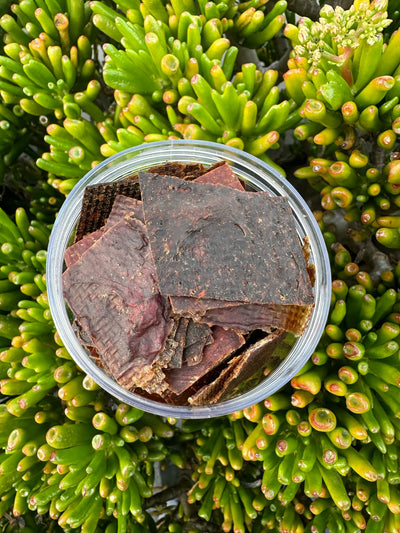As a loving dog owner, you always want the best for your furry friend. But when your dog starts scratching excessively, showing signs of irritation, or even developing skin issues, it might be time to consider if they have an insect allergy. Insect allergies in dogs, particularly to fleas and mosquitoes, are more common than you might think. In this post, we’ll dive deep into the causes, symptoms, and management of insect allergies in dogs and how the right diet, including hypoallergenic treats like those from Bags to Bones, can help.
What Causes Insect Allergies in Dogs?
Insect allergies in dogs are primarily caused by reactions to bites or stings from common pests like fleas, mosquitoes, and other insects. When an insect bites your dog, it injects saliva, which can cause an allergic reaction in some dogs. This reaction can manifest as intense itching, redness, swelling, and in severe cases, even hair loss or skin infections.
Common Insects That Cause Allergies in Dogs:
- Fleas: The most common culprit, flea saliva can cause Flea Allergy Dermatitis (FAD), leading to extreme itching and discomfort.
- Mosquitoes: Mosquito bites can lead to itchy welts and, in some cases, can cause severe allergic reactions.
- Ants, Bees, and Wasps: Though less common, stings from these insects can cause allergic reactions ranging from mild to severe.
Signs and Symptoms of Insect Allergies
Recognizing the signs of an insect allergy in your dog is crucial for timely intervention. Some common symptoms include:
- Excessive scratching or licking
- Red, inflamed skin
- Bumps or welts
- Hair loss in specific areas
- Restlessness or discomfort
- Hot spots or skin infections
If you notice any of these symptoms, it’s essential to consult with your veterinarian to determine the cause and appropriate treatment.
Protecting Your Dog from Insect Allergies
Preventing insect bites is the best way to protect your dog from allergies. Here are some tips to minimize exposure to these pesky insects:
- Regular Flea Control: Ensure your dog is on a regular flea prevention regimen. This could include topical treatments, oral medications, or flea collars.
- Avoid Mosquito-Rich Areas: Limit your dog’s exposure to areas where mosquitoes are prevalent, especially during peak mosquito hours (dusk and dawn).
- Maintain a Clean Environment: Regularly clean your dog’s bedding and living areas to reduce the risk of insect infestations.
- Use Natural Repellents: Consider using natural insect repellents that are safe for dogs, particularly during outdoor activities.
The Role of Diet in Managing Insect Allergies
A well-balanced diet is crucial in managing your dog’s overall health, including their reaction to insect allergies. Inflammation and skin irritations can often be mitigated by a hypoallergenic diet that supports skin health. Bags to Bones offers a range of dehydrated dog treats that are not only hypoallergenic but also packed with nutrients that promote a healthy coat and skin. Our Kangaroo and Butternut Pumpkin treats are particularly beneficial for dogs prone to allergies, as kangaroo meat is a novel protein that is less likely to cause allergic reactions.
Q & A Section
Q: How can I tell if my dog has an insect allergy?
A: If your dog is scratching more than usual, has red, inflamed skin, or develops hot spots, they might be suffering from an insect allergy. A vet can confirm the diagnosis.
Q: Can insect allergies be cured?
A: While there is no cure for insect allergies, they can be managed effectively with prevention strategies, proper diet, and, in some cases, medications prescribed by your vet.
Q: What treats are safe for my dog with insect allergies?
A: Hypoallergenic treats, like those from Bags to Bones, are an excellent choice. Our treats are made with novel proteins and ingredients that are gentle on your dog’s digestive system and supportive of skin health.
Managing your dog's insect allergies doesn't have to be a struggle. By combining preventive measures with a hypoallergenic diet, you can help your furry friend live comfortably and itch-free. Explore our range of dehydrated dog treats at Bags to Bones, specifically formulated to support dogs with allergies. Your dog deserves the best—start them on the path to better health today with Bags to Bones!
For more tips and to shop our range of hypoallergenic dog treats, visit Bags to Bones.













